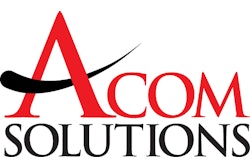Restructures return activities and expands best practices within Model
Pittsburgh — June 24, 2004 — The Supply-Chain Council Inc. has published Version 6.1 of the Supply-Chain Operations Reference-model (SCOR), a business process model used to describe and measure the business activities associated with all phases of satisfying a customer's demand.
The Supply-Chain Council said the Model is used by companies and governments around the world to describe and improve supply chains using standard process terms, metrics and best practices.
Version 6.1 of the SCOR-model is the eighth revision since the Model's introduction in 1996. In Version 6.1, there are two primary areas of change:
1) Returns — The Council said return activities within the Model have been restructured to more exhaustively and accurately depict the sequence of activities that take place between a customer and a supplier, including a more detailed description of the activities associated with the Return Authorization and Return scheduling activities. Additionally, metrics have been identified to measure return processes, activities that enable a more effective Return process, and the inputs and outputs of information flow have been described.
2) Best Practices — As part of an effort to identify implementation alternatives for practitioners, the Council has begun an initiative to review and expand the documented best practices within the Model. This version of the Model begins that update with the inclusion of a new definition of Best Practice and the addition of best practices in collaborative planning forecasting and replenishment (CPFR), sales and operations planning (S&OP), supplier assessment and supplier carrier agreements.
The Supply-Chain Council is a global, not-for-profit trade association open to all types of organizations. The Supply-Chain Council members include from organizations from virtually all industry segments worldwide, including: Fortune 500 companies, governments, small to medium enterprises, consulting firms, computer systems and solutions providers, and academic institutions.
The Council sponsors and supports educational programs, and said it is dedicated to improving the supply chain efficiency of its practitioner members.









